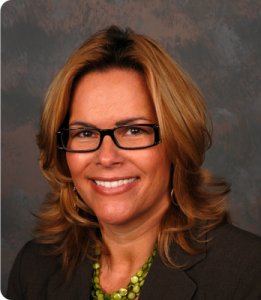Yesterday, President Trump declared the opioid crisis a public health emergency. I absorbed this announcement with a mixture of sadness, relief and optimism.
Sadness because it speaks to the truth of this devastating epidemic – lives torn apart, families broken, loved ones lost.
Relief that it’s receiving the attention and – hopefully – resources and support necessary to start turning the ship.
And optimism because it may open the door to encourage more people to find and accept help – perhaps even before they turn to opioids or other substances to numb feelings of despair, hurt or anxiety.
Here’s the reality we see every single day at Children’s Home Society of Florida: Families are torn apart because of this brutal addiction.
We see children clinging to their parents, unable to understand why they can’t go home. We see tears fall from the distraught eyes of moms and dads struggling to overcome this painful desire for another fix.
We see grandparents, great-grandparents, aunts, uncles and cousins stepping in to raise relatives so children can keep some sense of “normal” while their parents fight the toughest battle they may ever conquer.
But here’s the thing: We believe in these families. We believe in these parents.
I’m hopeful the president’s announcement will increase support and resources to help these families come back together; what I’ve seen thus far keeps my glass half-full.
In particular, the possibility of expanded access to telemedicine gives me real hope. At CHS, we’re leading the way with the implementation of telehealth in both counseling and psychiatry, providing immediate help to children, adults and families who need to talk with someone.
Like telemedicine, telecounseling eliminates many barriers to service: transportation, time, childcare … and, yes, even the stigma that sadly is still associated with therapy.
With telehealth, families struggling with the devastating effects of addiction – and even those on the verge of experimenting with substances – can receive the immediate, convenient and professional help and support they need to win this battle. Opening the door to increased access for this option is absolutely a step in the right direction.
In addition to treatment, though, we need to continue to conversation about how to tackle this epidemic on the front-end. Or, as we say at CHS, how to move further upstream.
Many substance addictions – including opioids – come about because untreated mental health challenges lead individuals to this type of “self-medication.”
Expanding access to counseling services and support before this occurs is the best way to win this fight – and that’s what we’re doing with telehealth at CHS.










